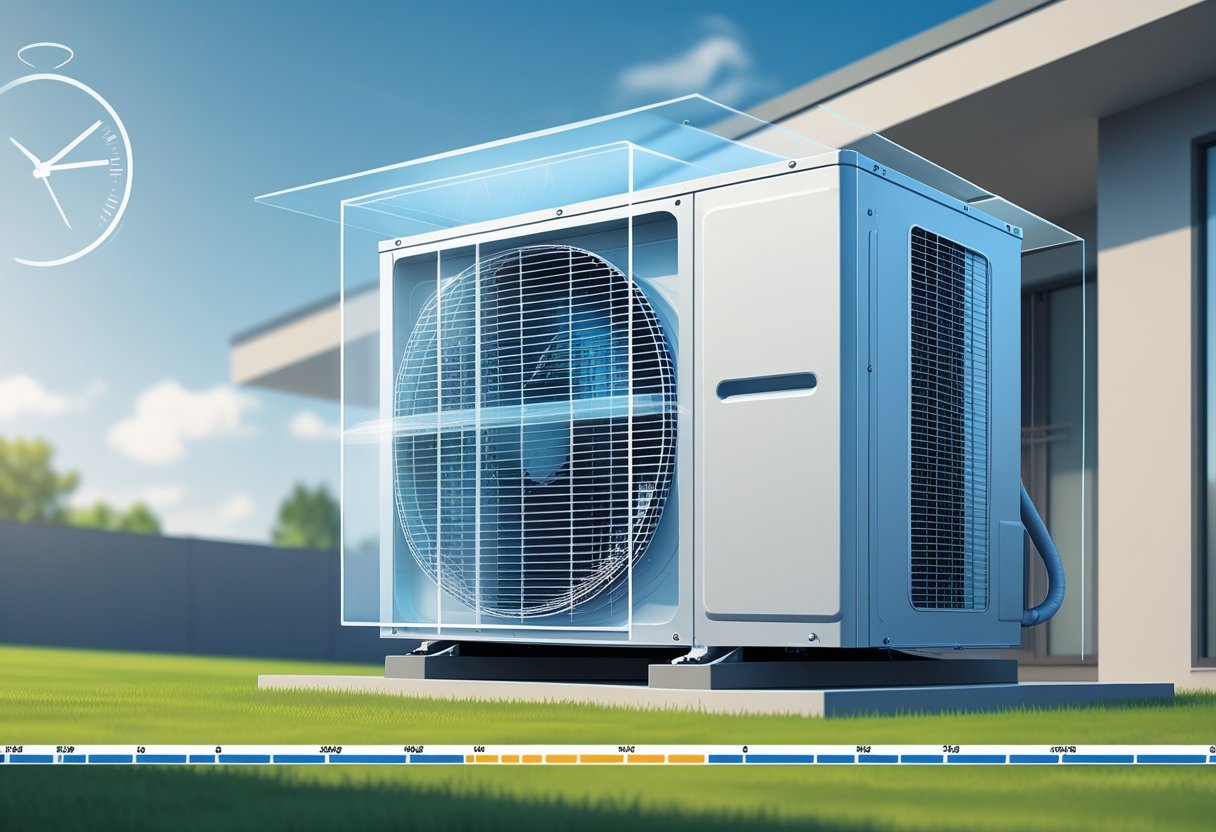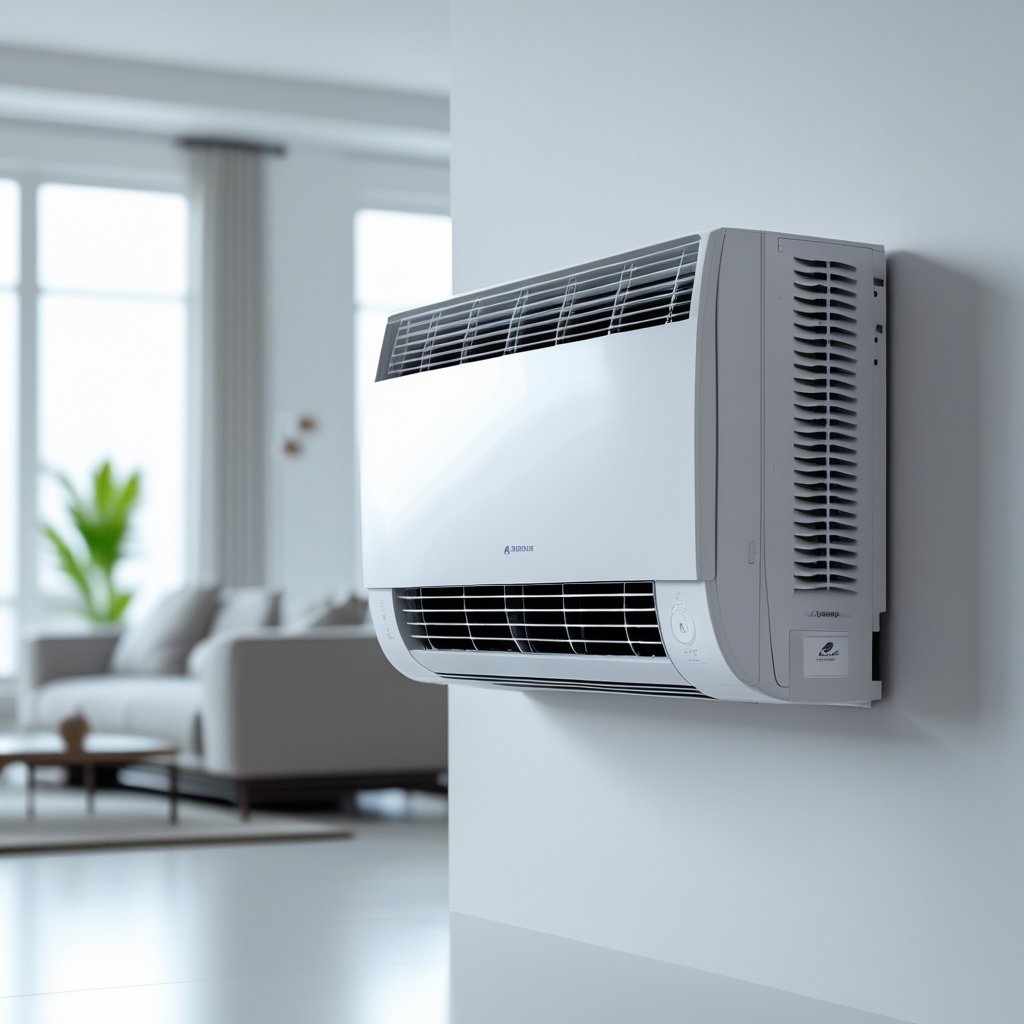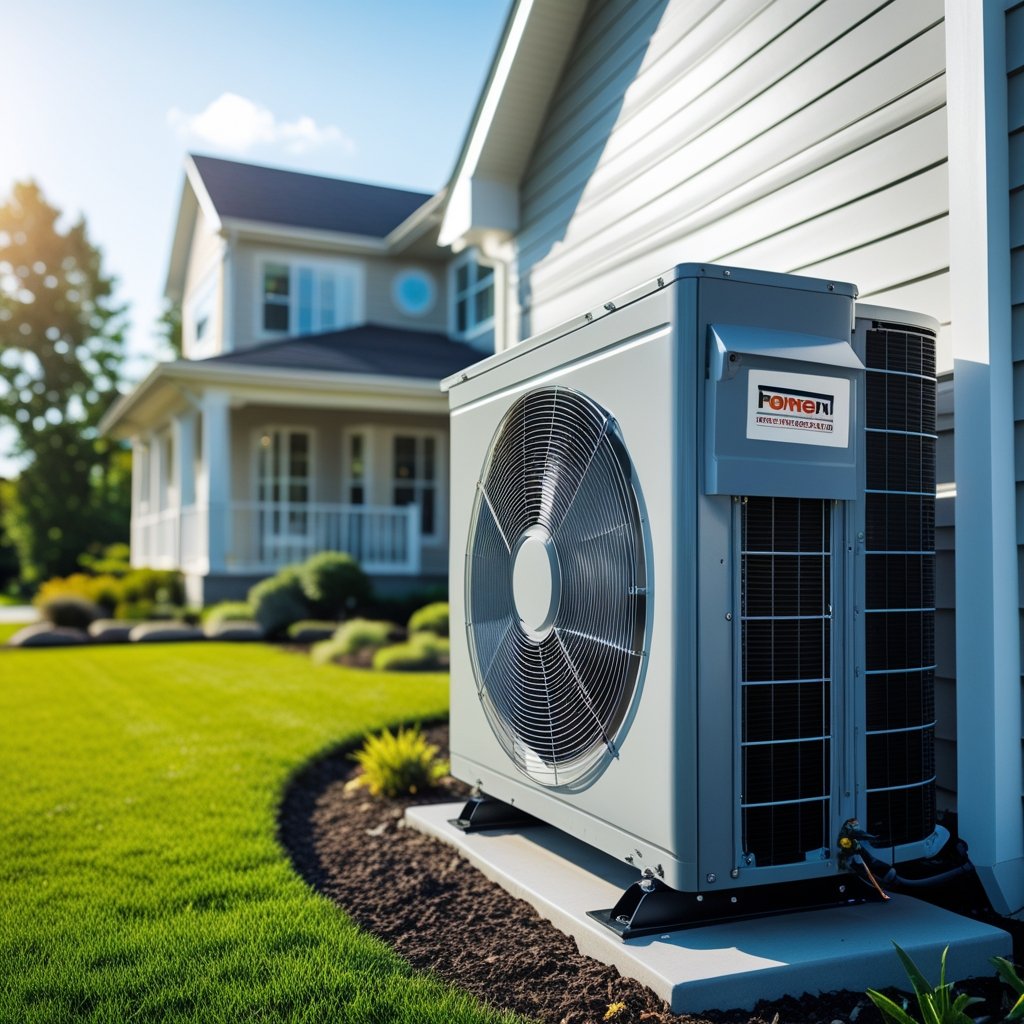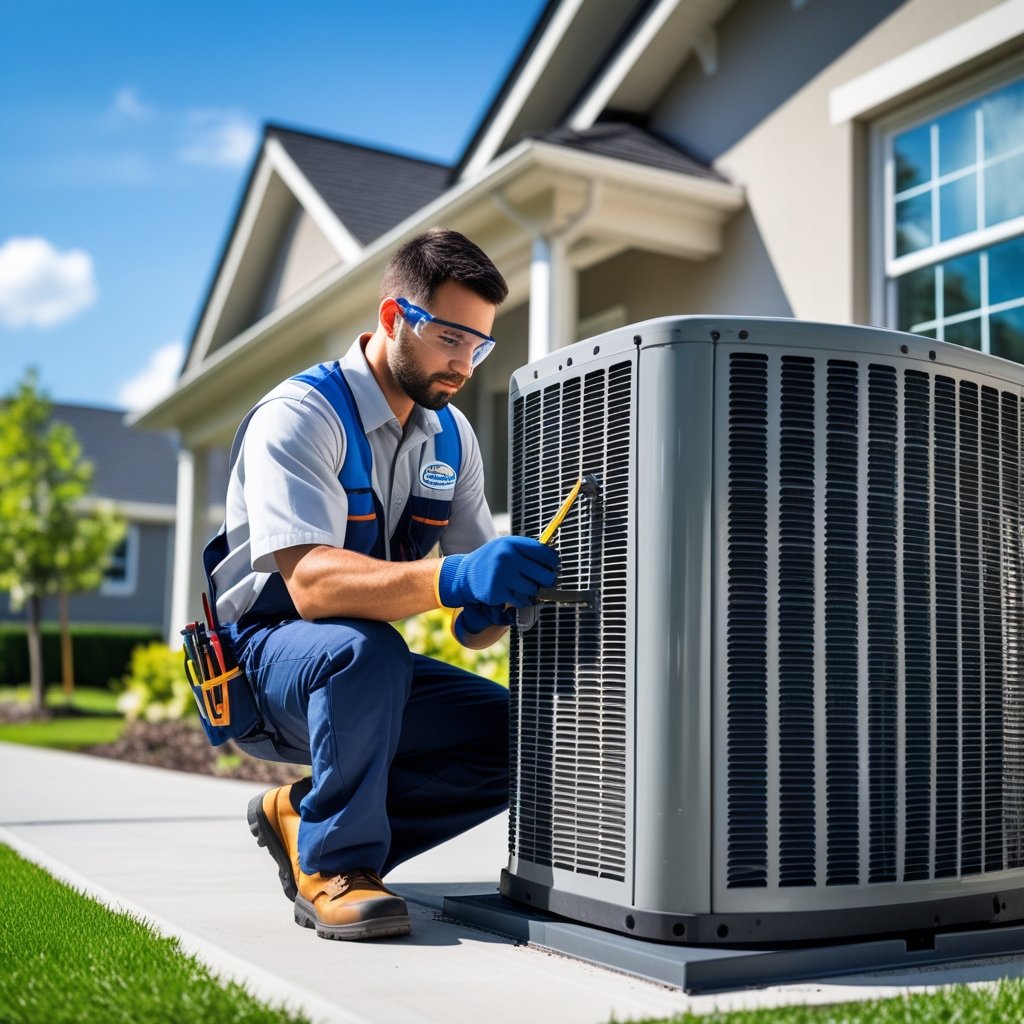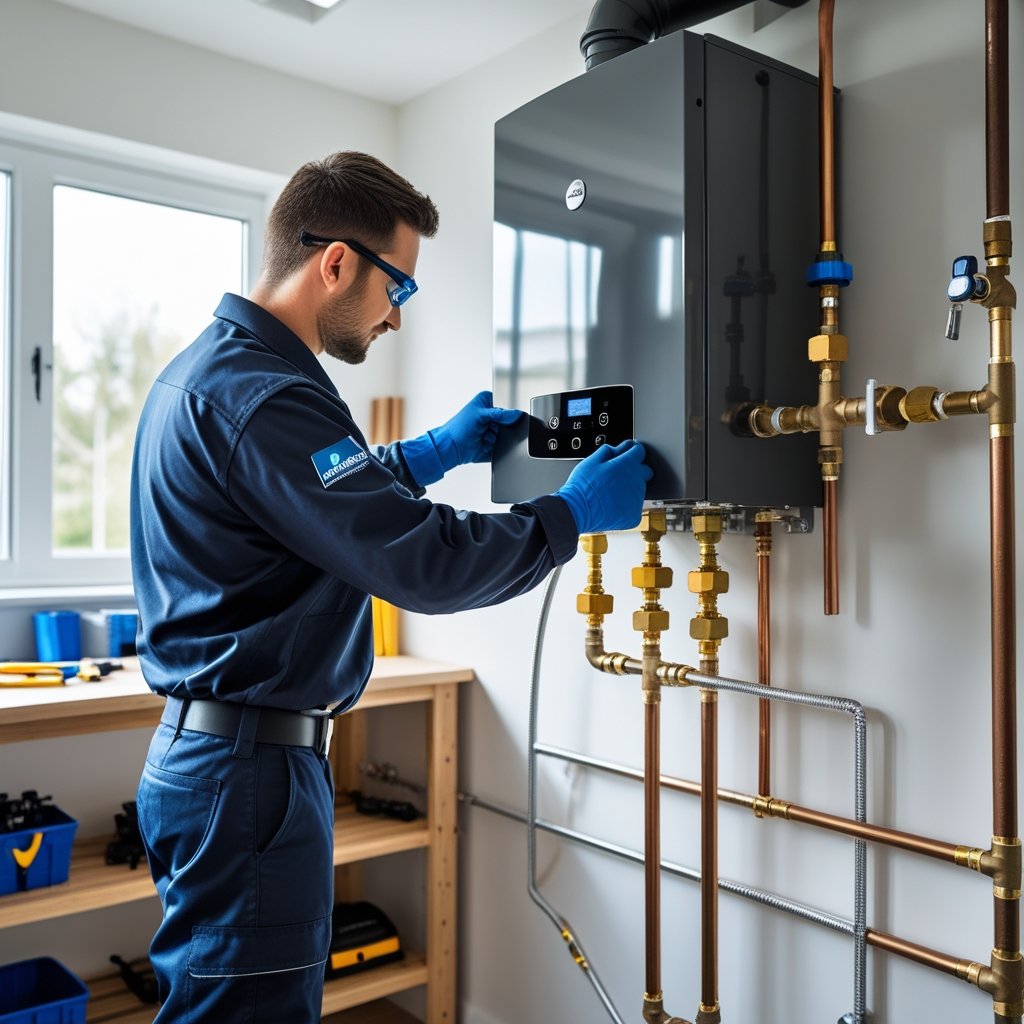When it comes to central AC units, the typical lifespan ranges between 15 and 20 years, depending on factors like usage, maintenance, and climate. Knowing how long your system should last helps you plan for repairs, maintenance, or eventual replacement without surprises.
Your system’s life depends greatly on regular upkeep. Proper maintenance can extend the performance and reliability of your AC, helping you avoid costly breakdowns. At Leo Kob Co., we emphasize quality service at a fair price to help you get the most from your investment.
If you live in South Central Pennsylvania, where temperatures can vary widely, keeping your AC in top shape matters even more. Whether you need a tune-up or advice on mini-split installation, trusting an experienced, family-owned company like Leo Kob Co. can make a significant difference.
Typical Lifespan of Central AC Units
Central air conditioners generally serve you well for over a decade, but many factors influence exactly how long they last. Maintenance, climate, and system type all affect their longevity and efficiency.
Average Years of Service
Central AC units typically last between 10 and 15 years with routine care. Proper maintenance such as regular cleaning, timely refrigerant refills, and professional tune-ups can help you maximize this lifespan. Some units, especially those installed with quality workmanship like Leo Kob Co. provides, may reach up to 20 years but this is less common.
Expect to see common age-related issues around the 12- to 15-year mark—refrigerant leaks, coil corrosion, and inefficiencies that drive up energy bills. Planning maintenance and knowing when to replace parts can save you money in the long run.
Comparison With Other AC Types
Central AC systems usually outlast window and portable units significantly. Window units average around 8 to 10 years, while portable units often last less than that due to their design and frequent movement.
Mini-split systems can sometimes outlive central units, offering 15 to 20 years of service with less duct-related wear. When choosing your system, consider not just upfront cost but how long you can expect reliable performance. Central units often offer better zoning and cooling efficiency across larger homes.
Central Air Conditioner Longevity by Climate
Your local climate plays a major role in how long your central AC lasts. Hot, humid areas like parts of South Central Pennsylvania can stress equipment over time, reducing lifespan closer to the 10-year mark. Units in milder or shaded environments often fare better.
Consistent overheating or heavy use, especially in summer months, speeds up wear. High humidity adds strain on components. If you live around Lancaster, Harrisburg, or Lebanon, lean on regular maintenance to combat climate wear. Leo Kob Co. technicians can guide you on climate-appropriate upkeep, helping your investment last as long as possible.
FactorEffect on LifespanExtreme heat exposureShortens lifeHumidityIncreases wearProper maintenanceExtends lifeInstallation qualityImpacts performance and durability
Factors That Affect Central AC Unit Lifespan
How long your central AC lasts depends on several key elements that influence its durability and performance. These include how well you care for the system, the fit between the unit and your home, how often it runs, and the quality of its parts.
Maintenance Frequency and Quality
Regular, thorough maintenance is critical for extending your central AC’s lifespan. Neglecting tasks like cleaning coils, changing filters, and checking refrigerant levels causes your system to work harder, increasing wear and reducing efficiency.
Scheduling annual inspections and tune-ups helps identify small issues before they become costly repairs. Good maintenance keeps energy costs down by ensuring your system runs at peak efficiency. Poor upkeep, on the other hand, can lead to breakdowns and shorten the unit’s expected 15- to 20-year service life.
Leo Kob Co. recommends proactive maintenance plans to maximize system longevity and energy efficiency—a practice especially important in South Central Pennsylvania’s climate.
Installation and Sizing
Proper installation by experienced professionals affects how long your AC unit will reliably work. If a unit is too large, it cycles on and off too frequently, increasing stress and energy use. A system too small runs continuously, wearing out components faster.
Accurate sizing considers your home’s square footage, insulation, and local weather patterns. Improper installation may also cause leaks or poor airflow, which hasten wear and reduce cooling effectiveness.
Choosing qualified contractors familiar with local building codes and climate, such as Leo Kob Co., helps ensure the system fits your home and performs efficiently over time.
Usage Patterns and Local Climate
The frequency and duration you run your AC affect its lifespan. Homes in hotter zones require more operating hours, causing faster aging of the compressor, fan motors, and other parts.
South Central Pennsylvania experiences hot, humid summers, which place higher demand on central ACs. Consistent heavy use without breaks leads to accelerated wear.
You can mitigate this by setting thermostats wisely, using ceiling fans, and shading your home. Efficient use reduces strain and energy bills, supporting your system’s quality of service for up to 20 years.
Build Quality and Brand Reliability
The materials and engineering quality determine baseline durability. Units from reputable manufacturers with solid warranties generally last longer.
Components like compressors, coils, and fan motors made with corrosion-resistant materials improve resistance to natural wear. Lesser brands might save you upfront but often require costly repairs or early replacement.
Selecting a well-regarded brand and trusting experienced installers ensures you get a system built to last. This investment supports energy efficiency and fewer breakdowns, so you avoid surprises and protect your home’s comfort for decades.
For dependable service and expert advice tailored to South Central Pennsylvania homeowners, consider the craftsmanship and fair pricing Leo Kob Co. offers.
Central AC vs. Other Air Conditioner Types
Central air conditioners generally last longer and serve larger spaces compared to other types of ACs. Their durability and maintenance needs differ significantly from ductless mini-splits, portable units, and window systems. Each system offers distinct advantages depending on your home's setup, budget, and cooling demands.
Ductless Mini-Split Systems
Ductless mini-splits combine flexibility with efficiency, operating without traditional ductwork. They often have a lifespan between 15 and 20 years, sometimes outlasting central units if properly maintained. Their design allows for targeted cooling in specific zones, which can cut energy use and reduce wear on the system.
Installation involves pairing an outdoor compressor with one or more indoor air handlers. This makes mini-splits ideal for homes where running ducts is impractical or for room additions. Mini-splits also qualify for energy rebates in many regions due to their efficiency.
If you’re in South Central Pennsylvania, Leo Kob Co. offers expert mini-split installation and maintenance to maximize your system’s longevity. Regular filter changes and annual inspections will keep these systems running smoothly.
Portable Air Conditioners Performance
Portable air conditioners provide a flexible, temporary cooling solution, especially if you can't install a permanent unit. Their lifespan is shorter, typically around 5 to 8 years, mainly because of their compact design and frequent movement. Components like compressors and fans endure more stress under variable conditions.
These units are simple to set up but tend to be less energy-efficient than central or mini-split systems. You should expect higher electricity costs if using a portable AC for extended periods. Maintenance involves cleaning filters regularly and ensuring the exhaust hose is properly vented to avoid moisture build-up.
While affordable upfront, portable air conditioners usually require replacement sooner, making them less economical for long-term use. Consider them best for occasional or supplemental cooling rather than main household comfort.
Window and Portable AC Comparison
Window units typically have a longer lifespan than portable models, lasting about 8 to 12 years with proper care. Unlike portable units, window ACs are mounted in a fixed position, improving their cooling efficiency and stability. They also tend to be quieter and offer stronger cooling for a similar price range.
Both types require regular cleaning of filters and coils to maintain performance, but window units usually need less frequent repairs. A major downside is the installation, which can involve sealing and securing the unit to prevent air leaks—especially important in Pennsylvanian winters.
If you weigh space limitations and budget, window ACs provide a more durable and energy-efficient choice than portable units for single-room cooling. Leo Kob Co. can assist in evaluating which type suits your needs and perform installations that ensure your investment lasts.
Signs Your Central AC Unit May Need Replacement
Over time, several clear indications show that your central AC might be reaching the end of its useful life. These symptoms highlight issues in reliability, indoor air quality, energy use, and cooling efficiency that impact comfort and costs.
Frequent Repairs or Breakdowns
If your AC needs repairs often, especially for major components like compressors or condensers, it’s a warning that the system may be aging out. Older units typically have more frequent breakdowns, leading to increasing costs and downtime.
Costly repairs on a unit more than 10–15 years old often outweigh the benefits of fixing it. You may also notice that repairs are less effective or temporary.
Regular maintenance helps extend life, but frequent service calls should prompt consideration of replacement. Leo Kob Co. recommends evaluating repair frequency to avoid unexpected failures during South Central Pennsylvania’s hot summers.
Declining Indoor Air Quality
Your AC does more than cool; it also circulates and filters indoor air. When your unit struggles, you may notice dust buildup, musty odors, or increased allergy symptoms.
Reduced airflow or buildup in the ducts can worsen indoor air quality as your system ages. This affects comfort and can impact health, especially if mold or bacteria grow in components.
Maintaining good indoor air quality is essential, and a failing central AC may no longer provide adequate filtration or humidity control. If routine maintenance doesn’t resolve indoor air problems, it might be time to replace the system.
Rising Energy Bills
Older AC units typically operate with less efficiency, drawing more power to achieve the same cooling effect. If your energy bills have increased despite similar usage, it may indicate your AC is losing efficiency.
Wear and tear on motors, fans, and coils reduces performance and increases electricity consumption. Newer units often qualify for rebates and offer stronger energy savings.
Tracking your energy expenses along with system age helps identify when replacement becomes a better financial choice than ongoing repairs.
Reduced Cooling Performance
A clear sign your AC is near the end of its lifespan is uneven or insufficient cooling. Rooms may feel warmer, or it takes longer for your home to reach the desired temperature.
This can result from worn-out compressor parts, low refrigerant capacity, or blocked airflow. Persistent issues despite servicing usually indicate the system cannot meet your cooling needs efficiently.
Leo Kob Co. advises homeowners in Lancaster, Harrisburg, and surrounding areas to watch for this sign, especially during peak summer heat. Addressing it early improves comfort and prevents damage to other HVAC components.
How to Extend the Life of Your Central AC Unit
To maximize the lifespan of your central AC unit, you need to focus on consistent care and smart upkeep. Key activities include regular maintenance, timely air filter changes, and keeping the outdoor unit clear of debris. These steps help your system run efficiently, reduce repair costs, and maintain energy efficiency over time.
Regular Maintenance and Servicing
Scheduling professional maintenance at least once a year is crucial. During a tune-up, a technician inspects refrigerant levels, electrical components, and the thermostat. They clean coils and check for leaks or worn parts that could reduce efficiency or cause breakdowns.
Regular servicing helps prevent unexpected failures and extends your AC's lifespan, often beyond the average 12 to 17 years. A well-maintained unit uses less energy, saving you money on utility bills. For reliable maintenance in South Central Pennsylvania, Leo Kob Co. offers quality service at a fair price, ensuring your system gets expert care without upsells.
Changing Air Filters
Air filters trap dust, pollen, and debris that could clog your system and reduce airflow. It’s important to replace or clean them every 1 to 3 months depending on usage and air quality. Neglecting filters makes your AC work harder, causing premature wear and higher energy consumption.
Using high-quality filters tailored for your system can improve indoor air quality while protecting sensitive components. This simple routine task helps keep your system running smoothly and can prevent costly repairs down the line.
Maintaining Clear Outdoor Units
Your outdoor condenser unit works best when air can flow freely around it. Remove leaves, grass clippings, and dirt regularly. Keep at least two feet of clearance around the unit and trim back shrubs or plants.
Blocked air intake forces your AC to overheat or freeze up, lowering efficiency and risking compressor damage. Cleaning the fins and removing debris ensures proper heat exchange and extends the unit’s life.
Taking these preventative steps, along with regular maintenance and filter changes, helps your central AC system stay energy-efficient and durable. For expert advice or service in Lancaster, Harrisburg, or nearby towns, contact Leo Kob Co. to protect your investment and enjoy lasting comfort.
Frequently Asked Questions
Central air conditioning units generally last over a decade with proper maintenance, but several factors affect when replacement becomes necessary. Knowing how environmental conditions, usage patterns, and system components influence your AC’s durability will help you make informed decisions.
What is the typical lifespan of a central air conditioning system?
Most central AC systems last between 15 and 20 years. With diligent upkeep, some units can approach 30 years, but that is less common. Systems that receive regular maintenance tend to reach the higher end of this range.
How frequently should residential central AC units be replaced?
You should consider replacement every 15 to 20 years. If your unit requires frequent repairs or shows declining efficiency after 10 to 12 years, replacing it might be more cost-effective than continual fixes.
What factors influence the durability of air conditioner compressors?
The compressor’s lifespan depends on the quality of manufacturing, how often the system runs, and maintenance habits like cleaning coils and changing filters. Extreme temperature changes and poor refrigerant levels also reduce compressor life.
Is the lifespan of central AC units different in high heat areas like Florida and Texas?
Yes. In high heat and humid climates, your AC unit is under more constant load, which typically shortens its lifespan by several years compared to cooler regions. This increased stress means more frequent maintenance and earlier replacement.
For maintenance purposes, when should I consider replacing my air conditioner?
If your AC unit is over 12 years old and requires repairs more than twice a year, it’s time to evaluate replacement. Noticeable drops in cooling performance or sharp increases in energy bills also indicate it may be more efficient to upgrade.
What is the average longevity of window versus central air conditioning units?
Window units usually last about 8 to 12 years, significantly less than central systems. Central AC units typically last 15 to 20 years, benefiting from more robust design and better maintenance opportunities.
For reliable service in South Central Pennsylvania, companies like Leo Kob Co. emphasize regular inspections to maximize your air conditioner’s service life. Quality service at a fair price will help protect your investment.

